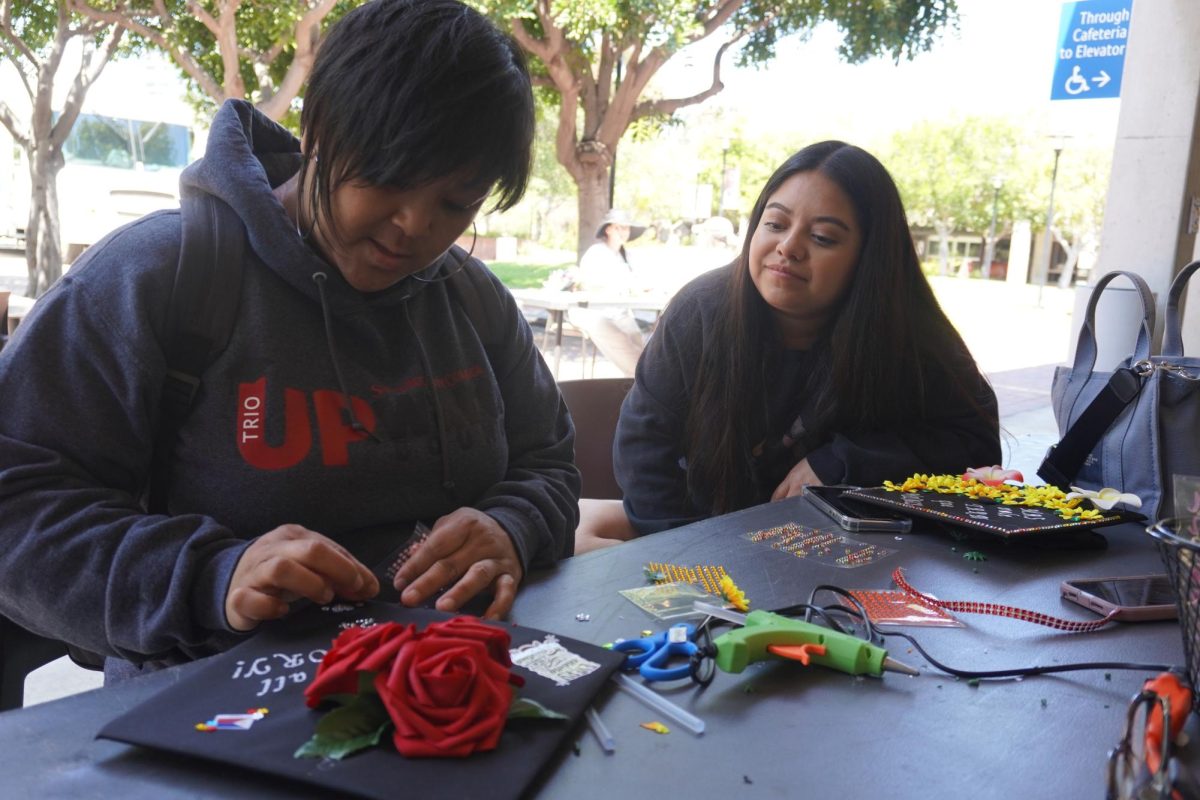“Ch-Ch-Ch-Chia.”
Anyone familiar with this catchy phrase will remember the popular novelty item it was used to sell: the Chia Pet.
Chia pets are small terra-cotta animals that with a little water, sunshine and lots of love sprout green “fur.” The pet gets its name from the tiny seeds that are slathered on its surface to grow this grassy coat.
While the seeds are not well known outside of this context, their popularity has begun to resurface for a very different reason: the many health benefits they contain.
Chia seeds are high in omega-3 fatty acids, fiber, calcium, antioxidants and protein. About 1 millimeter in size, dark brown or off-white in color, each seed can hold up to twelve times its weight in water.
This large rate of water absorption means that when consumed they can make you feel full faster and for longer periods of time.
The seeds also slow down the absorption of carbohydrates, helping to stabilize blood sugar levels.
Native to Mexico and Central America, chia seeds have a long history with many native peoples. The USDA plant guide explains their importance in the diets of the Chumash, Paiute and even the Nahua people of ancient Mexico.
Several Internet retailers and grocery stores such as Sprouts and Whole Foods sell the seeds at prices ranging anywhere from $5.99 to $16.99 per pound. They can also be purchased in fruit or energy bars as well as muffins and flavored drinks.
“I feel like you can never eat too many healthy foods,” said Robert Razee, a Sprouts shopper. “Chia seeds are something I was introduced to by a runner friend of mine. They are great for keeping you hydrated.”
Unlike flax seed, another good source of omega-3 fatty acids, chia seeds do not need to be ground in order to reap their nutritional benefits. With their light, nutty flavor they can be sprinkled on cereals, yogurt and salads and can be added to baked goods or smoothies without compromising taste.
Because they are high in omega-3s, chia seeds serve as a vegetarian alternative to fish oil supplements. With their high levels of antioxidants they can be stored for up to two years without becoming stale.
People who take medication to lower blood pressure or to thin blood should avoid the seeds as they may increase the effects of these medications.
Seeds consumed dry may dehydrate the body so it is recommended they be eaten with some form of hydration.
At the Whole Foods Market in Hillcrest, sales of the seeds have increased.
“We usually carry chia seeds in bulk,” said Richard, an employee, “but we’ve been out of stock.”







